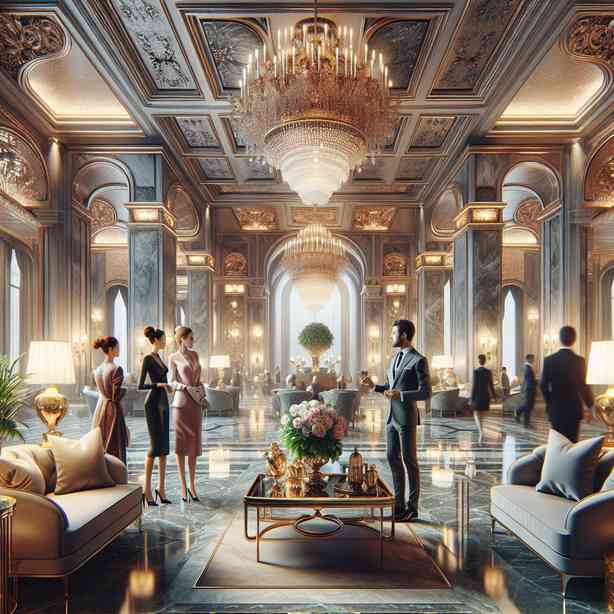
When the Lobby Smells Like Luxury
Entering a luxurious lobby can be a sensory experience that captivates us from the moment we step through the doors. The ambiance, the decor, and most importantly, the scent collectively create an inviting atmosphere that can transform a simple entrance into an unforgettable experience. From high-end hotels to sophisticated corporate offices, the significance of scent in such spaces cannot be overstated. This article aims to delve into the nuances of how scents in luxurious lobbies can enhance the overall experience for guests and visitors, ultimately making them feel more welcomed and valued.
Luxury is often associated with exclusivity, elegance, and superior quality. It is a realm where attention to detail is paramount, and the scent is a critical element of that detail. When you’d expect nothing less than the best, the olfactory experience becomes more than just a pleasant fragrance; it evolves into a branding tool that evokes emotions and memories. Perfume houses and scent marketing companies have, over the years, understood that creating a signature scent can elevate the perception of a brand and its offerings significantly.
Imagine walking into a five-star hotel lobby, greeted by the warm, inviting fragrance of freshly brewed coffee coupled with subtle floral notes. This carefully curated aroma immediately sets a tone of warmth, making visitors feel at ease. Often, these scents are designed to evoke feelings of comfort and relaxation, helping to alleviate the stress that might come with travel or business engagements. It’s remarkable how such elements work together to create an ambiance conducive to social interactions and networking.
The luxury scent industry has gained traction over recent years, with companies investing heavily in scent branding. A signature scent is not merely an afterthought; it’s an investment in creating lasting impressions. For instance, high-end establishments often employ professional scent designers to create a unique olfactory signature that aligns with their brand identity. These scents can range from soothing and calming to invigorating and refreshing, each purposely crafted to enhance the overall guest experience.
Furthermore, studies indicate that scent has a profound effect on memory and emotion. The olfactory bulb, a part of the brain responsible for processing smells, is closely located to the limbic system, which governs emotions. Thus, a beautiful scent can create positive associations, making guests more likely to return. When the lobby smells like luxury, it subtly encourages loyalty and brand recognition, as guests associate that delightful aroma with the exceptional service and comforts they experienced.
However, it is crucial to acknowledge that not all scents convey luxury effectively. The choice of fragrance should reflect the brand’s ethos and the target audience. What might work wonderfully for a chic urban hotel may not resonate well in a serene countryside spa retreat. The emphasis should be on understanding the psychology of scent and its broader implications for guest experience.
Moreover, the delivery of these scents is as vital as the scent itself. Many establishments utilize scent diffusers that disperse the fragrance evenly throughout the space. These devices ensure that the aroma flows gently into the air, allowing it to linger without overwhelming guests. A thoughtfully dispersed scent elevates the atmosphere without intruding on the guests’ space. This consideration for balance is a vital aspect of maintaining a luxurious experience.
Another noteworthy point is the significance of seasonality and adaptability in scents. Luxury brands are beginning to embrace the idea of changing their signature scents according to the seasons or specific events. For instance, a bright, zesty citrus scent might dominate a summer lobby, while warm, spiced aromas could inhabit the winter months, offering a cozy, inviting atmosphere. This adaptability not only keeps the experience fresh for returning guests but also creates a connection to the time and place, enhancing the overall sensory experience.
In conclusion, when we observe how a luxurious lobby smells, we uncover a complex interplay of branding, psychology, and sensory experience. The scents that waft through such spaces do more than please the nose; they evoke emotions and memories, foster a welcoming atmosphere, and foster loyalty. As scent continues to emerge as a pivotal element in luxury branding, establishments that prioritize these olfactory experiences can create unique and memorable encounters for their guests. The purpose of crafting these luxury scents is not simply about indulgence but about creating environments that inspire connection, comfort, and a sense of belonging. Thus, when the lobby smells like luxury, it is not merely about the fragrance itself; it is about an entire experience that guests will carry with them long after they leave.


